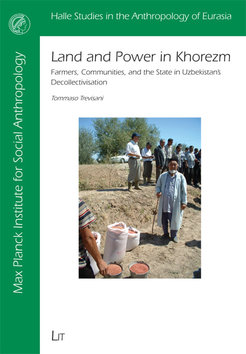Land and Power in Khorezm. Farmers, communities, and the state in Uzbekistan’s decollectivisation

Author
Tommaso Trevisani
Publisher
Berlin: LIT Verlag
Year of publication
2010
ISBN
978-3-643-90098-2
OPAC
Abstract
In this first detailed, grass-roots account of Uzbekistan’s protracted decollectivisation, Tommaso Trevisani explores continuity and change in relations between rural communities, agricultural producers, and local state authorities in the cotton-growing region of Khorezm. Built up during the Soviet period, the cotton sector has retained its importance for the state and for rural communities in the years since independence, but economic growth remains modest, and social conditions have worsened significantly. Uzbekistan’s agricultural reform path has diverged from those of most other postsocialist countries, and continuity with the past remains strong. But while rural society in Khorezm may superficially appear static, the local view presented in this book unveils an unexpectedly dynamic situation, characterised by shifts in patronage relations, struggles over legitimacy, and transformations in family structure and community life. Poised between the state, their communities, and an emerging stratum of absentee farm ‘sponsors’, the new farmers of Khorezm, with their struggle for a place in rural society, are the focus of Trevisani’s analysis. What has emerged from decollectivisation in Uzbekistan is a complexly articulated new ‘agrarian question’ involving new inequalities and conflicts.
